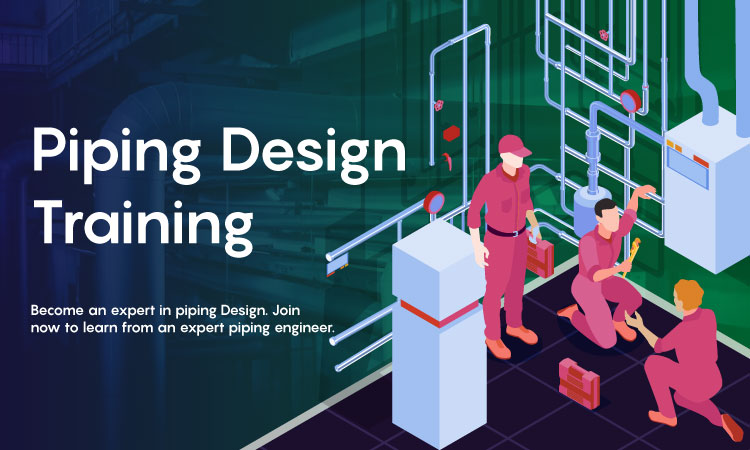Introduction
Piping design engineers are vital assets in industries ranging from oil and gas to pharmaceuticals, ensuring the safe and efficient transportation of fluids and gases. While their expertise traditionally finds application in engineering firms and industrial settings, this guide explores unconventional career paths that harness their skills in innovative ways. From sustainable infrastructure to space exploration, we delve into unique opportunities that showcase the versatility of piping design engineers.
Different and Unique Jobs for Piping Design Engineers
Piping Design Engineer play a critical role in various industries, including oil and gas, petrochemicals, pharmaceuticals, and more. Their expertise in designing piping systems ensures the safe and efficient transportation of fluids and gases within industrial facilities. While the traditional career path for piping design engineers involves working in engineering firms or within specific industries, several unique job opportunities leverage their skills in unconventional ways.
Let us explore some of these unique career paths and the opportunities they offer.
1. Sustainable Infrastructure Development
Piping design engineers can contribute to sustainable infrastructure development by working on projects focused on renewable energy, such as geothermal or solar power plants. These projects require intricate piping systems to harness and distribute energy efficiently. Engineers in this field work on designing and optimizing piping layouts to maximize energy output while minimizing environmental impact.
2. Aquaculture and Fisheries
In the aquaculture industry, piping design engineers are tasked with designing systems for fish farms and hatcheries. They ensure the efficient flow of water, oxygen, and nutrients to support the growth and health of aquatic organisms. Engineers may also work on projects related to the sustainable management of fisheries, designing systems for fish processing and transportation.
3. Theme Park and Entertainment Industry
Theme parks and entertainment complexes often require complex piping systems for attractions such as water rides, theatrical effects, and artificial snow production. Piping design engineers in this field work closely with architects and ride designers to create innovative and safe systems that enhance the visitor experience while adhering to strict safety regulations. I equipped the Piping Design Course in Delhi with the latest training methods for the best skill development.
4. Space Exploration and Aerospace
The space exploration and aerospace industries rely on intricate piping systems for propulsion, cooling, and life support systems in spacecraft and launch vehicles. Piping design engineers play a crucial role in designing these systems to withstand the extreme conditions of space travel, including high temperatures, vacuum environments, and zero gravity.
5. Biotechnology and Pharmaceutical Manufacturing
In biotechnology and pharmaceutical manufacturing facilities, piping design engineers are responsible for designing systems for the production, purification, and distribution of pharmaceutical products. They work on projects involving sterile processing, cleanroom design, and the transportation of delicate biological materials, ensuring compliance with strict regulatory standards.
6. Food and Beverage Processing
Piping design engineers in the food and beverage industry design systems for the processing, packaging, and distribution of food products. They work on projects ranging from dairy processing plants to breweries and bottling facilities, ensuring the safe and hygienic transportation of ingredients and finished products.
7. Waste Management and Environmental Engineering
Piping Design Engineer can contribute to environmental conservation efforts by working on projects related to waste management and pollution control. They design systems for wastewater treatment plants, landfill leachate collection systems, and industrial emissions control, helping to mitigate the environmental impact of human activities.
8. Underwater Engineering and Subsea Pipelines
Underwater engineering projects, such as offshore oil and gas production and underwater mining operations, require specialized piping systems designed to withstand high pressures and corrosive environments. Piping design engineers in this field work on projects involving the design, installation, and maintenance of subsea pipelines and risers, contributing to the exploration and sustainable extraction of marine resources.
9. Urban Planning and Smart Cities
In the field of urban planning and smart cities, piping design engineers play a role in designing infrastructure for water supply, sewage systems, and district heating and cooling networks. They work on projects aimed at improving the efficiency and sustainability of urban infrastructure, integrating advanced technologies such as sensor networks and data analytics to optimize system performance.
10. Virtual Reality and Simulation Software Development
Piping design engineers can also leverage their expertise to develop virtual reality (VR) and simulation software for engineering design and training purposes. By creating realistic virtual environments, engineers can simulate the behavior of piping systems under various conditions, allowing for virtual prototyping and personnel training safely and cost-effectively.
Conclusion
In summary, the field of piping design offers a diverse range of career opportunities beyond the traditional roles in engineering firms and industrial settings. The Piping Design Course in Delhi aims to provide the best training and placement opportunities for aspiring professionals. By exploring these unique career paths, piping design engineers can apply their skills and expertise to address complex challenges across various industries, contributing to innovation, sustainability, and human progress.

